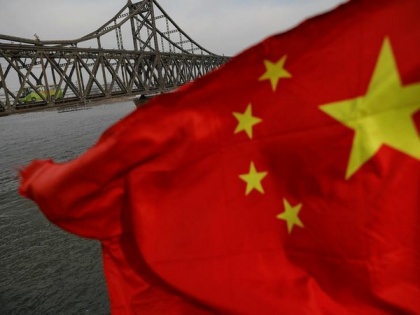Character of China's imperial foreign policy: Report
By ANI | Published: July 1, 2023 12:28 PM2023-07-01T12:28:42+5:302023-07-01T12:30:04+5:30
Washington [US], July 1 : Aspiring to establish its imperial foreign policy, China left no stone unturned and expended ...

Character of China's imperial foreign policy: Report
Washington [US], July 1 : Aspiring to establish its imperial foreign policy, China left no stone unturned and expended a minute amount of force, largely in an irregular fashion, according to a former US Navy surface-warfare officer James Holmes who was cited in the 9 Forty-Five
19 Forty-Five is a US-based news publication that covers US domestic politics, economics, culture, the impact of technology, and even social issues.
Holmes' remarks were delivered at the Center for Irregular Warfare and Armed Groups Maritime Symposium, Middletown, RI on June 28.
Till now, China has pursued a strategy of patience, especially in Southeast Asia, deploying coercion against outmatched neighbours short of armed conflict while building up the military means to do something more bold, decisive, and conventional should party leaders so choose.
"So in my judgment, China's leadership has opted for a low-magnitude, long-duration effort to achieve goals party chieftains ardently covet and have promisedtime and again, and in the strongest, most unequivocal termsto deliver to the Chinese people," Holmes said.
"Beijing calls its goals the 'Chinese Dream,' That's General Secretary Xi Jinping's banner phrase for his policy of a 'great rejuvenation of the Chinese nation on all fronts,' to borrow his words from the 20th Party Congress last October. On all fronts covers an enormous amount of ground, from constructing a prosperous socialist society to gaining control of Taiwan to overthrowing the regional order in the Western Pacific and perhaps beyond. The Chinese Dream is to Make China Great Again," Holmes said.
Holmes is the JC Wylie Chair of Maritime Strategy at the Naval War College and a Distinguished Fellow at the Brute Krulak Center for Innovation & Future Warfare, Marine Corps University.
He tossed the Imperialism word and said that Imperialism is one of those words that, as George Orwell wrote of the word fascism, have been used so sloppily for so long that they have come to mean little more than "something not desirable." It's a loaded term.
Holmes recalled Professor Hans Morgenthau, who in his classic "realist" text Politics Among Nations in the 1940s, defined an imperialist foreign policy as "a policy which aims at the overthrow of the status quo, at a reversal of the power relations between two or more nations." That's a precise and more neutral definition.
And it's worth noting that aspiring to an imperial foreign policy is nothing new for Communist China, even if the party had to put its aspirations on hold for many decades.
In fact, on page one of her book on the Sino-Japanese War of 1894-1895, my friend and colleague Sally Paine write that the Japanese victory over China's Qing Dynasty turned the world upside down in Asia, enthroning imperial Japan atop the regional order while ousting China from its accustomed place. China has been trying to overturn the result of the Sino-Japanese War ever since.
Chinese leaders might go along with the status quo while the country was too weak to amend it, but they always envisioned doing away with the status quo once strong and replacing it with another under Chinese predominance. Beijing might bide its time, to borrow former party chieftain Deng Xiaoping's words, but that was an expedientan interim phase to be put behind the nation once a favourable balance of power made that possible.
"As far as what kinds of forces we should stage in the region to compete to good effect, this is a law-enforcement challenge as much as a military challenge. It's about sovereignty, which again boils down to who makes the rules, and where on the map. So in a sense we should take a page from China's playbook and make coast guardslaw-enforcement servicesand light naval forces our implements of choice, backing them up with heavier naval forces and shore fire support should things go sideways," Holmes said.
"That's why the recent news of our return to the Philippines is so welcome, as are reports that multinational coastguard patrols may soon take to the sea. Let's experiment with how to harness joint and combined maritime forces along with geography for strategic and political effectemboldening our hypothetical fisherman.
Do all of this, and we might blunt the worst excesses of China's imperial foreign policyand spoil the Chinese Dream," he added.
Disclaimer: This post has been auto-published from an agency feed without any modifications to the text and has not been reviewed by an editor
Open in app